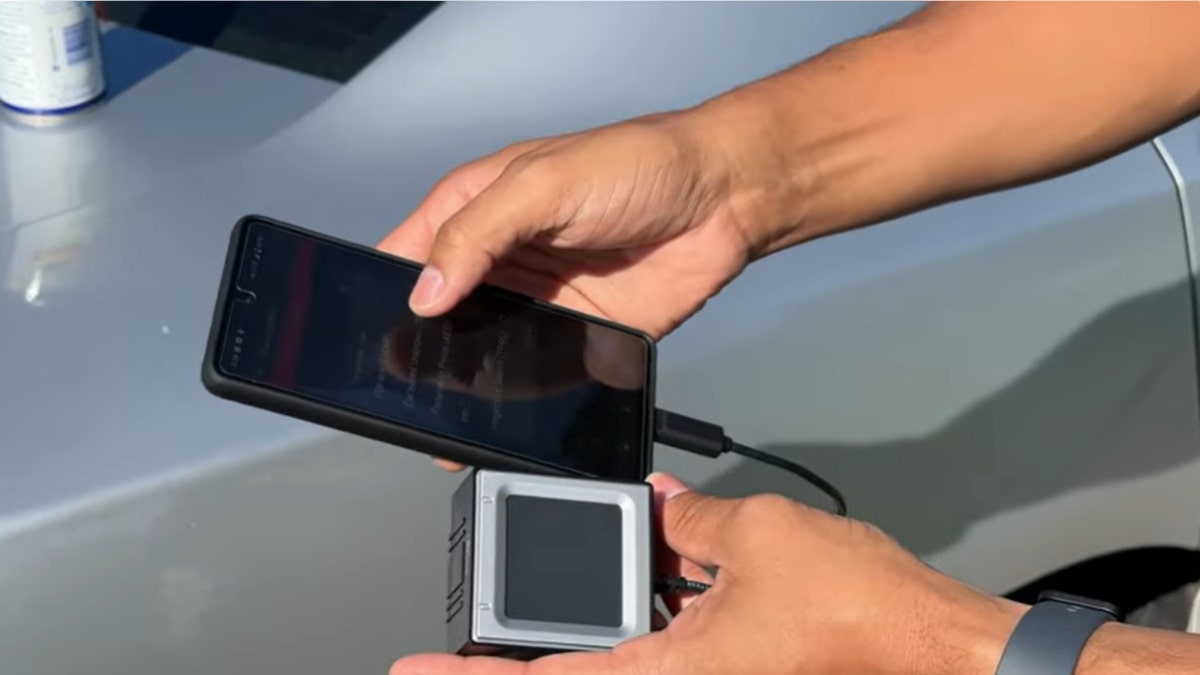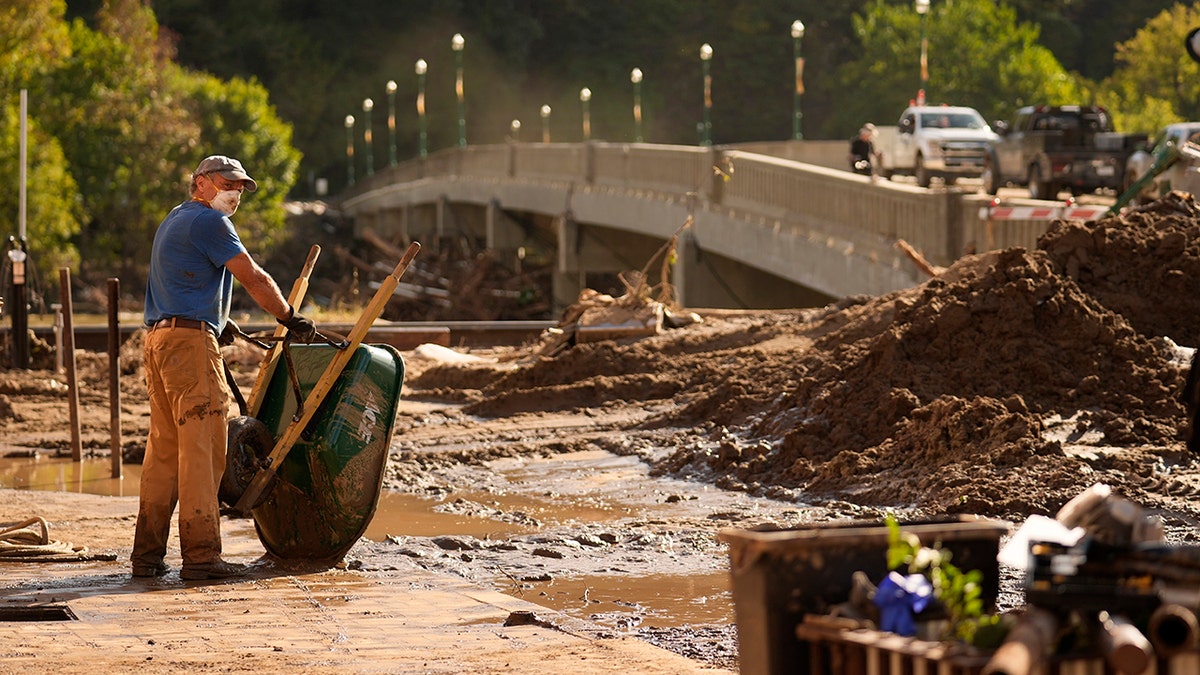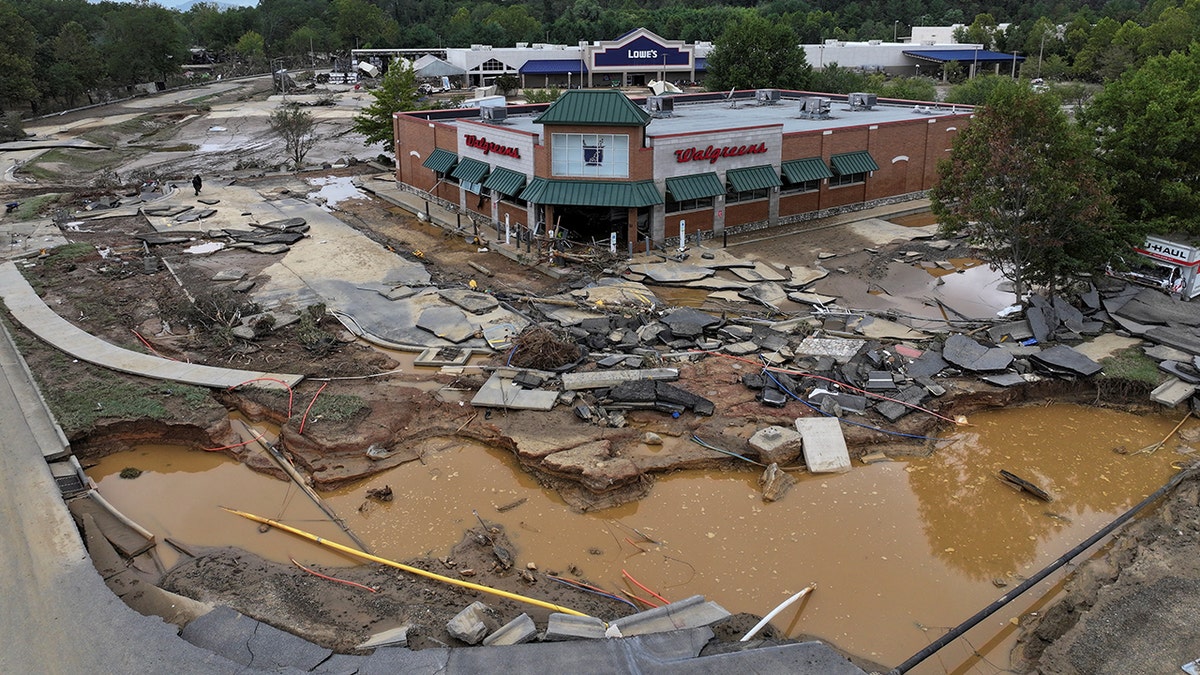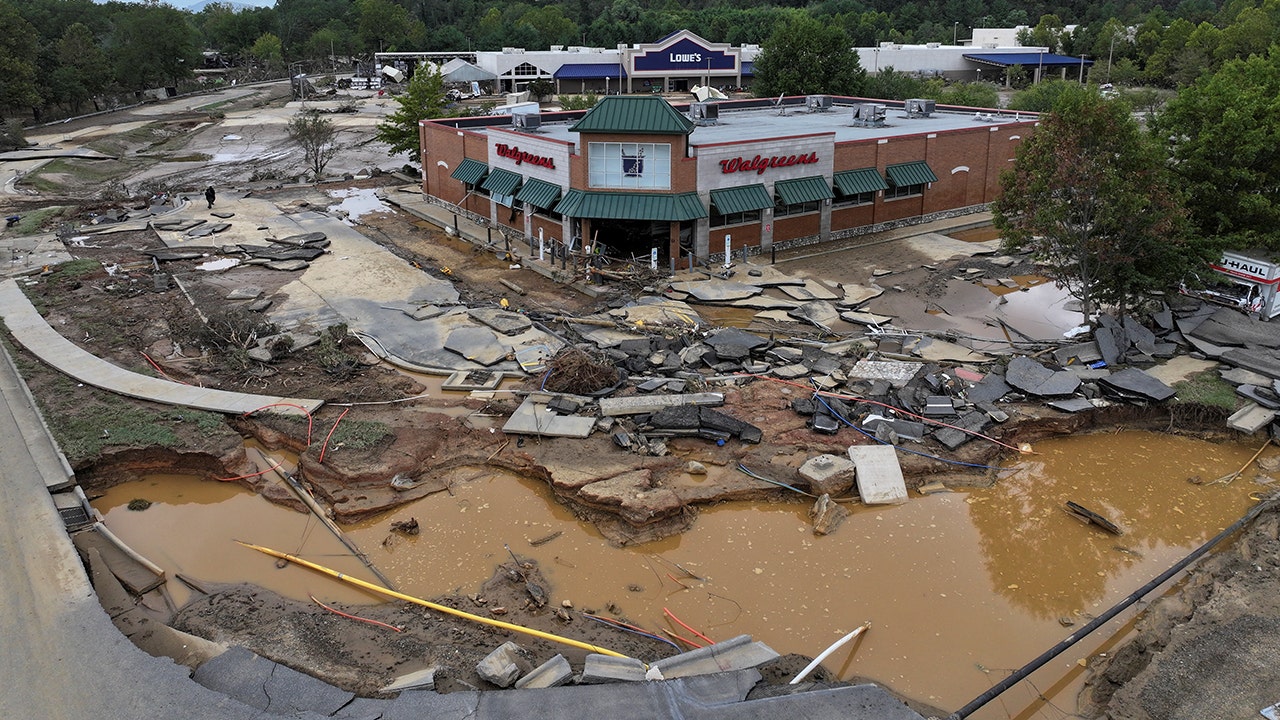Agents with the FBI Nashville Field Office have been using new fingerprint-recognition technology to identify deceased individuals in the aftermath of Hurricane Helene.
“When you’re doing this, you still take extra care because that was a human and that was somebody’s loved one. It was somebody’s mother, brother, sister,” FBI Special Agent Paul Durant, who has been with the FBI for five years, said in a statement. “It’s tough, but it’s rewarding to know that we can provide some answers to families who are suffering.”
The hurricane that devastated parts of Florida, Georgia, Tennessee, the Carolinas and Virginia has left more than 230 people dead since it made landfall on Sept. 27.
The FBI has been assisting local law enforcement with the grim task of identifying bodies in the eastern Tennessee and western North Carolina regions that were impacted by historic flooding, using electronic fingerprint devices that connect to phones that typically help law enforcement identify criminals.
HURRICANE HELENE: 11 FROM SINGLE NORTH CAROLINA FAMILY DEAD AS AUTHORITIES KEEP FINDING BODIES
FBI Nashville Special Agent Paul Durant discusses the recovery process after Hurricane Helene in southern Appalachia. (FBI)
Some victims’ remains are severely compromised. Others crossed state lines from North Carolina into Tennessee due to rapidly moving waters after the storm.
“The first time I walked into the morgue, I was hit with a sense of disbelief,” Durant said. “I had never been to a medical examiner’s office before, so it was surreal. You know what your job is, but it doesn’t fully sink in until you’re standing there, face-to-face with the victims. That’s when it becomes real, and you switch into work mode.”
FOX CORPORATION LAUNCHES DONATION DRIVE FOR AMERICAN RED CROSS HURRICANE HELENE RELIEF EFFORTS

The FBI has been assisting local law enforcement with the grim task of identifying bodies in the eastern Tennessee and western North Carolina, using electronic fingerprint devices that connect to phones that typically help law enforcement identify criminals. (FBI)
Durant added it was “overwhelming” some days, “seeing the destruction and hearing the stories.”
“But at the end of the day, knowing we can help identify these victims and bring some comfort to their families makes it all worth it,” he added.
NORTH CAROLINA MOM OF 4 SWEPT UP BY HURRICANE HELENE FLOODING IN FRONT OF HUSBAND, 8-YEAR-OLD SON

Brian McCormack pauses after using a wheelbarrow to clean up debris left in the aftermath of Hurricane Helene, Oct. 1, 2024, in Marshall, North Carolina. (Jeff Roberson)
Agents use smartphones to send fingerprints collected directly from victims to the FBI Laboratory in Quantico, Virginia, to expedite what can be a lengthy process. Collecting fingerprints, however, was not always a quick task. Agents had to use advanced forensic techniques in some cases to get clear prints.
“Knowing we have this unique access to national fingerprint files that others might not is critical,” Special Agent Reanna O’Hare, who has served as the senior team leader on the Knoxville FBI’s Evidence Response Team, said in a statement.
O’Hare noted how the FBI was able to utilize Department of Defense and Homeland Security databases: “We’ve been able to identify some victims who otherwise might have remained unknown.”
HURRICANE HELENE: NORTH CAROLINA RESIDENTS FIGHT FOR THEIR SURVIVAL AS BASIC GOODS BECOME SCARCE

A drone view shows damage following the passing of Hurricane Helene, in Asheville, North Carolina, on Sept. 29. (Reuters/Marco Bello)
But Joe Carrico, special agent in charge of the FBI in Tennessee, emphasized that “it’s not just about the fingerprints.”
CLICK HERE TO GET THE FOX NEWS APP
“It’s about the people and the families we’re serving,” Carrico said. “Our role is to support our state and local partners in bringing answers to those who need them most. In moments like these, it’s impossible not to feel the weight of that responsibility.”
Federal, state and local officials continue recovery and rebuilding efforts in southern Appalachia after Helene. The death toll is expected to rise as the process continues.

